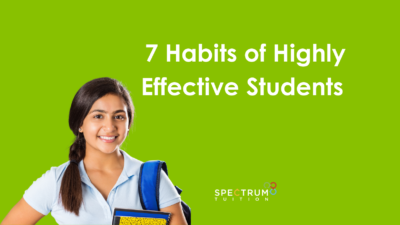Students who choose to perform well often have similar routines, habits, or rituals when it comes to schoolwork and studying. For many of these students, the same habits spill over into other parts of their lives. Many students want to be high performing students, but their instincts for these habits are reduced. For parents who want to encourage student success, explaining what to do is often complicated. They do not always know what steps are the most important. While many of these students have more than seven habits, and some of these could be counted in different areas, these seven habits are most common amongst high-performing students. They are listed in random order. Each is vital to success, so ranking them seems futile.
Plan
High-performing students plan their day, study sessions, and tasks before undertaking them. This helps with more than one area. First, students, who prepare the task ahead of time, know what materials, time frames, and information must be gathered before beginning. This minimizes starting and stopping and allows students to accept or decline other obligations as they are offered.
They would have also planned their future well ahead. They would know which career path to choose, and which course they should take up in order to reach there. And more than often, their chance of having trouble deciding on a master’s degree would be low compared to students who lack planning. Definitely, a structured planning would be the key for any high-performing student.
Schedule
Similar to planning, high-performing students pay attention to their schedule. This also means scheduling easy tasks or breaks. These students know that their brains need activity and rest. Exercise and physical activity are great for learning. They also carefully plan their schedule so that they have time to study and participate in learning activities. Making sure that things do not overlap is valuable to these students.
Goals
Setting goals makes every task more manageable. Have you ever had an assignment and didn’t know what to do with it? Did you know what the result should be? This was because you did not have a goal in mind. You did not have the chance to decide what tasks were required because you did not know where you were going with it. Setting goals is also a fantastic way to measure achievement. Many of these students strive to be perfect, but they learn from their failures. Making a mistake allows them to reset and adjust their goals.
Minimize Distractions
Successful students minimize the distractions around them. They choose study partners that keep on task, study in quiet spaces, and do not surf the web when they should be doing research. This can be one of the hardest parts of studying for younger students. If their parents require them to keep the computer in a shared space, quiet music with noise-canceling headphones can be helpful. This does not mean blast J. Cole’s latest album while dancing. The music should not command attention, make your home practical and functional. It should be used to keep you from listening to the television or surrounding conversations.
Study
This one seems like a no-brainer, but there is also a pattern here. Students who achieve more also study more and have focused study sessions. For example, if the student has a big biology test coming up, he or she does not wait until the night before to cram. Studying begins when the material starts in class. This way, any confusing concepts can be clarified ahead of time! These students also study one subject at the time. They may study 4 subjects in a day, but each item gets dedicated time.
Prioritize
Productive students prioritize information and studying. If they have a major biology test, but math is covering a review chapter, they may still study math briefly, but the biology material gets more attention and time. They also prioritize studying over other tasks. Health, sleep, and exercise also take priority over socialization. High achieving students still want to socialize, but they know that getting the proper amount of rest is critical for memory.
Seek Help
When these students are stuck on a problem, concept, or paper, they do not just muddle through. They ask experts like their teachers, librarians, or tutors for help. They know that they do not know everything, and sometimes they need help from people who know more. This allows them to connect with their learning rather than struggling and feeling stressed out.
Final Thoughts
Students who are high achieving got that way from focusing and working hard. They also know that there will be times that their achievement stumbles, but that gives them a chance to learn and grow even more. If you are trying to be a better student, think about your learning priorities. Can you make them more functional? Try to set goals and effectively plan your tasks. Does it help? Let us know!


